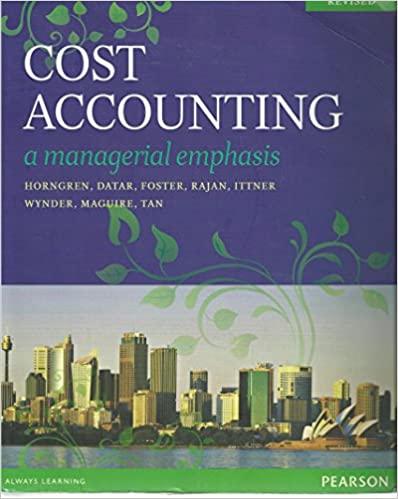Question
Case Study Noncash Assets Fraud Every year companies write down losses from inventory misappropriation of physical, noncash assets including inventory, equipment, supplies, and products. Fictitious
Case Study Noncash Assets Fraud Every year companies write down losses from inventory misappropriation of physical, noncash assets including inventory, equipment, supplies, and products. Fictitious Sales Lets consider how fictitious sales would apply in the retail industry. A retail employee who is selling books may ring up a sale for a new bestseller that the employee has been waiting to read and then subsequently void the transaction in the register as damaged goods. In this scenario, the employee would be creating a fictitious sale for the purposes of misappropriating the book. Another fictitious sales scheme can be perpetrated if the employee is not intending to be the end user of the particular bestseller, and then, voids the sale, and then sell the book online. Asset Requisition and Transfer A record scheme that perpetrators have used to steal inventory is asset requisition and transfer. This scheme can be perpetrated by placing internal orders for inventory that exceed the amount actually needed to complete the project. The perpetrator can then either take the actual products and use them him/herself or resell. Purchasing and Receiving Any organization that is heavily involved in shipping and receiving products, including online retailers and manufacturers, as well as any other type of organization that receives products at their loading docks, is susceptible to this type of fraud. The fraudster is typically an employee who is in a position to falsify incoming or outgoing inventory records and has physical access to the inventory itself. While much of the focus has been on employee-perpetrated fraud, external parties can also take advantage of purchasing and receiving schemes. Outside fraudsters must have knowledge of an organizations routines, procedures, and controls. Question You are in charge of setting up the internal controls that may mitigate the risk of inventory fraud. What would be your list of controls? Explain a little about each.
Step by Step Solution
There are 3 Steps involved in it
Step: 1

Get Instant Access to Expert-Tailored Solutions
See step-by-step solutions with expert insights and AI powered tools for academic success
Step: 2

Step: 3

Ace Your Homework with AI
Get the answers you need in no time with our AI-driven, step-by-step assistance
Get Started


